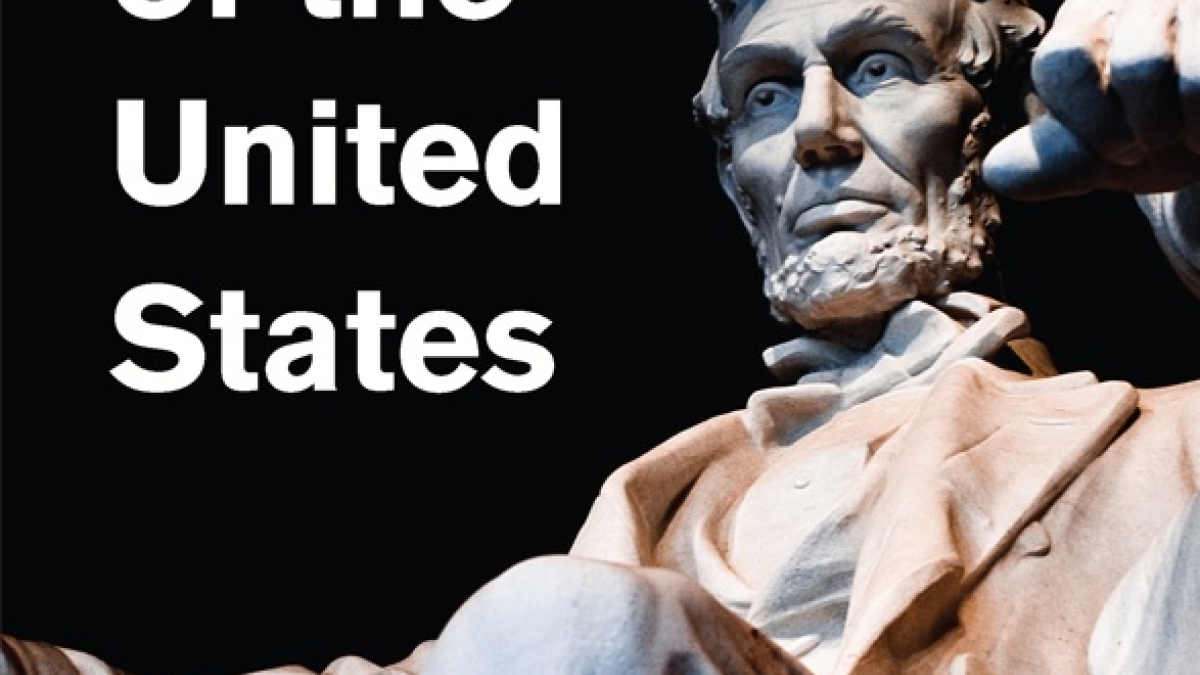Constitutional awareness advances students' careers

Cover of the U.S. pocket constitution published by the School of Civic and Economic Thought and Leadership.
How can a 235-year-old text help students develop the skills to become successful professionals and citizens in the 21st century?
In a nutshell, constitutional awareness allows us to understand the role civic responsibility plays in America, and this fall, Arizona State University students have the opportunity to dissect the U.S. Constitution, the separation of powers and structures of government — specifically federalism — and the rule of law.
Enrollment is now open for CEL 494 - The American Constitution I (class #88635) taught by Aaron Kushner and offered by the School of Civic and Economic Thought and Leadership on Mondays and Wednesdays, from 1:30 to 2:45 p.m. in Tempe. Learn more here.
CEL 494 is the first of a two-part sequence on the American Constitution aimed at “cultivating educated leaders, professionals and citizens who are well-versed in constitutional law and many of its implications,” said Kushner, which makes this course great preparation for careers in such fields as law, public office, teaching, business and journalism, among others.
“American Constitution I is structured to focus on three main areas,” Kushner said. “We will begin by studying the text of the Constitution itself, then analyze the nature of constitutional authority by examining where claimed government powers properly belong. Finally, we will explore how constitutional interpretation has developed over time.”
In this course, students will read a variety of texts from the U.S. Constitution to Supreme Court decisions to political speeches on the nature of government and power itself. Taught in an environment based around discussions, which prompts students to engage with both each other and the material, CEL 494 will encourage students to dive into the complexities and different interpretations of the Constitution.
This course is an opportunity to develop both critical thinking skills and strong writing habits.
— Professor Aaron Kushner
Aaron Kushner
“Students will understand the structures and division of powers created under the U.S. Constitution and which institutions rightly exercise each power,” Kushner said. “They will also be exposed to major theories and debates over constitutional interpretation and justifications for and assumptions contained in each.”
At the end of this course, students will be able to understand different ways of interpreting the Constitution and how to engage with other legal texts. They will discuss, for example, the opposition between originalism and living constitutionalism.
“This course is an opportunity to develop both critical thinking skills and strong writing habits since students will write regular reflections on the material,” said Kushner, who earned his doctorate in political science at the University of Missouri. He is the assistant director of the School of Civic and Economic Thought and Leadership's Living Repository of the Arizona Constitution initiative and is currently working on a book titled “Ruling or Being Ruled? The Development of Cherokee Political Thought.”
The second course of this two-part sequence will focus on civil rights and civil liberties, though these will be touched on in American Constitution I. The two courses fit under the school's overarching mission to educate in American constitutional principles.
As part of its efforts to achieve this goal, the School of Civic and Economic Thought and Leadership publishes and distributes pocket versions of the U.S. Constitution followed by three other crucial texts: the Declaration of Independence, Abraham Lincoln’s Gettysburg Address and Martin Luther King Jr.’s “I Have a Dream'' address. Together, these four documents are the fundamental charters of the most enduring form of liberal democracy the world has ever known.
“The School of Civic and Economic Thought and Leadership seeks to restore the nexus of classical liberal education and fundamental civic education so that students are prepared to understand and practice civic leadership in 21st century America and our globalized world,” added Paul Carrese, founding director of the School of Civic and Economic Thought and Leadership.
American Constitution I is part of the fall 2022 list of courses offered by the School of Civic and Economic Thought and Leadership, an academic unit of the College of Liberal Arts and Sciences. The school combines philosophy, history, economics and political science to examine great ideas and solve contemporary problems. To learn more about the school, visit scetl.asu.edu.
More Law, journalism and politics
Law experts, students gather to celebrate ASU Indian Legal Program
Although she's achieved much in Washington, D.C., Mikaela Bledsoe Downes’ education is bringing her closer to her intended…

ASU Law to honor Africa’s first elected female head of state with 2025 O’Connor Justice Prize
Nobel Peace Prize laureate Ellen Johnson Sirleaf, the first democratically elected female head of state in Africa, has been named…

Native Vote works to ensure the right to vote for Arizona's Native Americans
The Navajo Nation is in a remote area of northeastern Arizona, far away from the hustle of urban life. The 27,400-acre…
